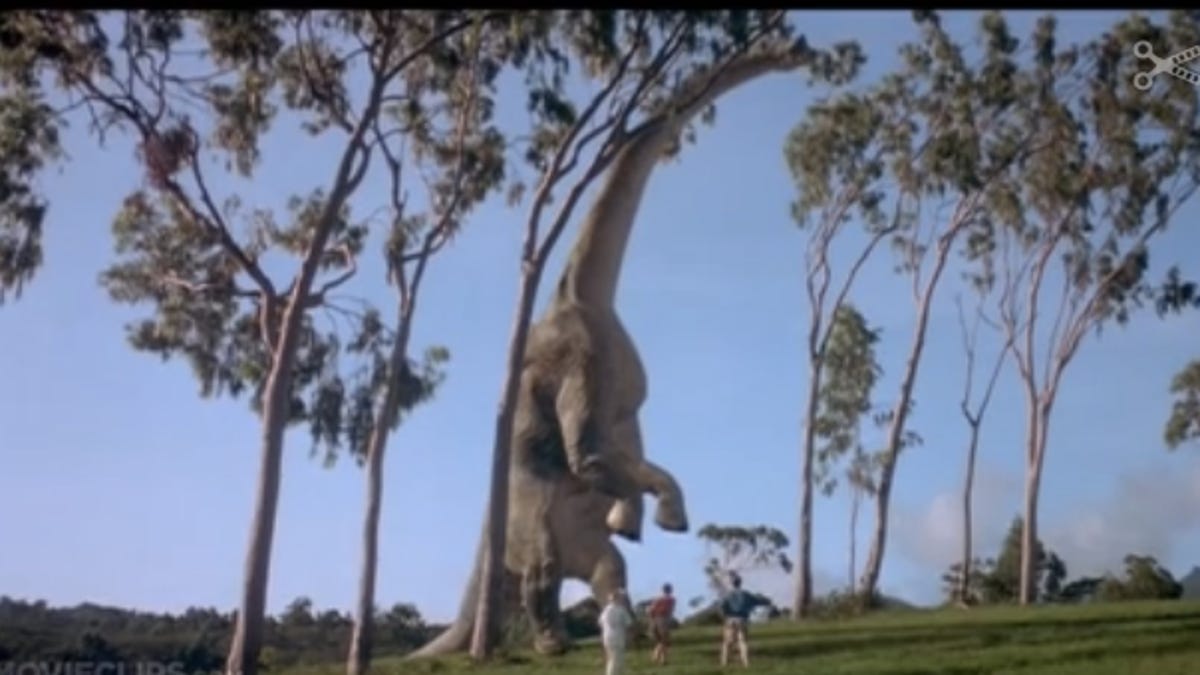Birds could be turned back into dinosaurs, says biochemist
The DNA of birds could be the conduit to a re-creation of dinosaurs. The idea would be to design genomes of creatures from the past.

It's fairly clear that we're in for a period of rapid change.
This might lead to a stunning new world, if you believe Google. Or, in the view of some scientists, it might also lead to a re-creation of Sam Neill's finest moments.
So please imagine, if you dare, a world in which dinosaurs roam again. I am sure they will appreciate the advent of large meals in America and especially the Big Mac and large fries.
How might this all happen? Well, one British biochemist believes that she might be able to take the DNA of birds and use it to re-create dinosaurs.
According to the Telegraph, Alison Woodard believes that scientists like herself need to have a full grasp of the DNA of modern birds.
Then, with a little genetic alteration -- a nip here, a tuck there -- there is a chance to design genomes that would turn out to be the large creatures we only know from books and movies.
The Telegraph quotes Dr. Woodard as saying: "We know that birds are the direct descendants of dinosaurs, as proven by an unbroken line of fossils which tracks the evolution of the lineage from creatures such as the velociraptor or T-Rex through to the birds flying around today."
I confess I didn't know that, but am glad that she does.
This all apparently means that your friendly neighborhood sparrow, mudlark, or flamingo might have in them the basic stuff to be T-Rex.
"Could we 'rewind' evolution by switching these genes back on and using them to guide the development of that bird's offspring, and its offspring's offspring, backwards?" Woodard asks.
"Yes, let's!" I reply, excitedly.
The biggest problem, allegedly, is editing. The boffins would have to take, say, a puffin and try to reform the precise sequence of nucleic acids to create a baby dino.
Apparently, the re-creation of a woolly mammoth might be cinch in comparison. Indeed, she is not the first scientist to suggest this, nor even the first British scientist.
The cloner of Dolly the sheep, Ian Wilmut, has already declared that the mammoth might be his next target for a comeback.
Of course, many of these creatures tended toward the unfriendly. They were hostile, even.
As Woodard mused: "On a more practical note, if we remind ourselves of the terror portrayed in the "Jurassic Park" blockbuster, do we really want to live alongside dinosaurs?"
I feel many would like to try. It would be like a theme park gone mad, and we do so like our theme parks to be large and spectacular.
I wonder, though, whether the dinosaurs will be happy to live in a world that has moved on somewhat from their times.
Still, there would be something quite poetic to see an Amazon drone wafting through the sky, bearing the latest James Patterson novel and a dinosaur looking up at it and believing this is lunch.
As with most scientific advancement, it's the unintended consequences that can be the most fascinating.

